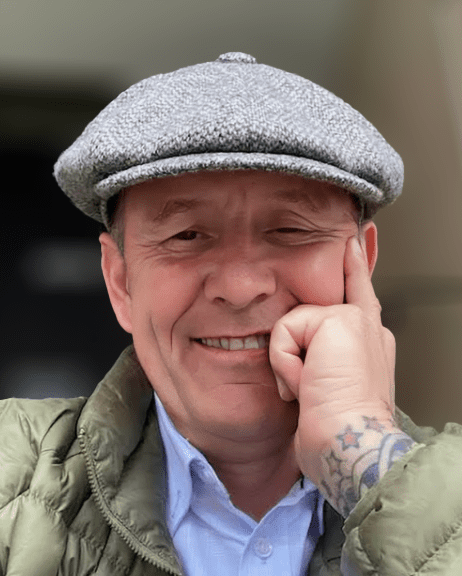Welcome to The Valley of Addiction

Entering The Valley

Enduring The Valley


Escaping The Valley
Addiction: A 3 Dimensional Relationship . . .
Spiritual, Psychological, Emotional.
Other than babies born with a dependency on the substances that the mother abuses during pregnancy, people are not born as, or destined to become, addicts.
Some treatment models suggest however, that addictions are genetic, which many chemically dependent people secretly relish because that then exonerates them from taking responsibility and creates a revolving door in and out of relapsing.
Having once been chronically addicted for 12-years, because of the home environment that I came from as a child, I also became a mentor and therapist for 30-years. People born into emotional intelligence, sensitive nurture, and psychological stability, very rarely end up in a lifestyle of addiction or alcoholism, apart from they who carry unresolved trauma.
Anyone can become chemically dependent, all it needs is emotional dishonesty and a few dodgey decisions. But here's the good news, anyone can find recovery, all it needs is emotional honesty and a few brave decisions. It really isn't rocket science.

Stage One: Entering The Valley
In my opinion, the foundational self-deception at the root of every addiction is the belief of ‘I won’t get addicted’, triggering a deadly domino effect … ‘I’m only going to try it.’
(Go to: Addiction Definition Podcast)
At first consumption of the substance, the influence of the substance can be life changing, and this is what distinguishes the users from the abusers, and the abusers from the addicts.
(Go to ‘Statistics’ Podcast).
I eperioment with the subsrance and not only do I like it, the complete lack of any controvacy or consequence tells me there’s nothing to suggest that I am an addict, so I can try it again - Deception, Experimentation, Recreation.
Because of the lack of adverse consequences, we tell ourselves that we can be weekend users. But then, because the drug seems to be losing its strength, we also nconvinceourselves that its perfectly safe to use a little bit more. We fail to see that by increasing the amount each week, we are developing a tolerance level, and so, trying to recreate that first high, we keep increasing.
Because we tend to believe that we're something we're not, we tell ourselves that we could stop at any time, and we then use this (we can stop at any point) rationale, to keep using, and a new psychological default programme develops in us … the more we use, the less we receive, so the more we use ….
As the adverse consequences start to kick in, we try to deny the increasing suspision that ‘this is getting out of hand’, with the same self-deceiving belief that 'we can and will take control by cutting down' - Escalation, Deterioration, and thats the slide into The Valley.
Stage Two: Enduring The Valley
Consequences start to increase. The substances start to cost more than money.
Finances start to dwindle, as do self-esteem, self-confidence and the respect of life-long friends.
The home atmosphere becomes one of suspicion, arguments, finger pointing and tears.
Promises begin, but the more we promise to stop, because we believe our promises, the worse we feel when we relapse.
The worse we feel, the more substances we use, and the more promises we make. The harder we try, the worse it gets, and the worse it gets, the harder we try, and the more we fail, the more substances we use. Escalation, Deterioration, Determination.
The relationship with the influence of the substance creates a self-sustaining 3 dimentional corrosion effect, spiritually, psychologically and emotionally, 'the worse it gets - the worse it gets.'
When people say we need help, we completely agree with them, but until undeniable evidence of how this 3D corrosion started and the continued, acknowledgements of needing help are ususally smoke screens. Many of us can be so convincing that we even agree to go to treatment as a part of the stage play to get people off our backs.
The danger then, going into treatment too soon and for the wrong reasons, very rarely, if ever works, so then when the times does arrive and we truly want help, we have no faith in treatment.
It's at this point, with these and many more penetrating insights, that 180 Degree Mentorship is exactly what people need, and we have senior recovery and trauma mentors in England, Belgium and South Africa, looking to mentor and to train others into Mentorship.
Blog
Drawing from three decades of therapeutic influence, we are proud to present a meticulously crafted 12-month Home Help Intervention Programme.
This professional initiative reflects our commitment to providing impactful and structured therapeutic interventions for clients experiencing substances abuse, chemical dependency, depression, and trauma.
